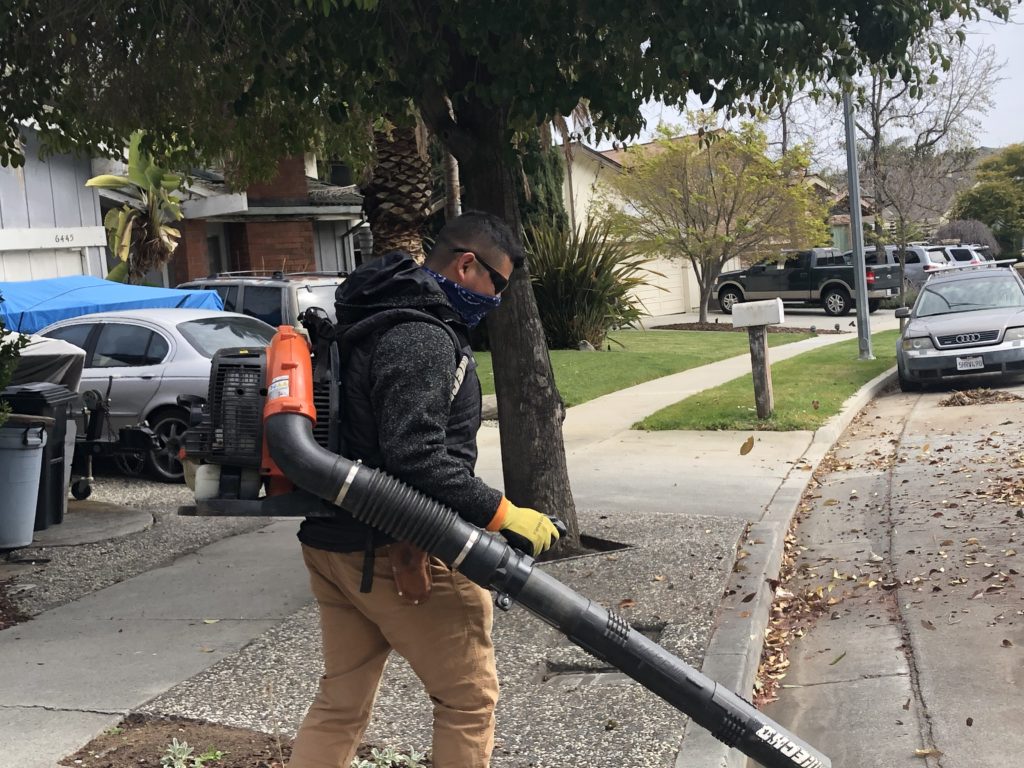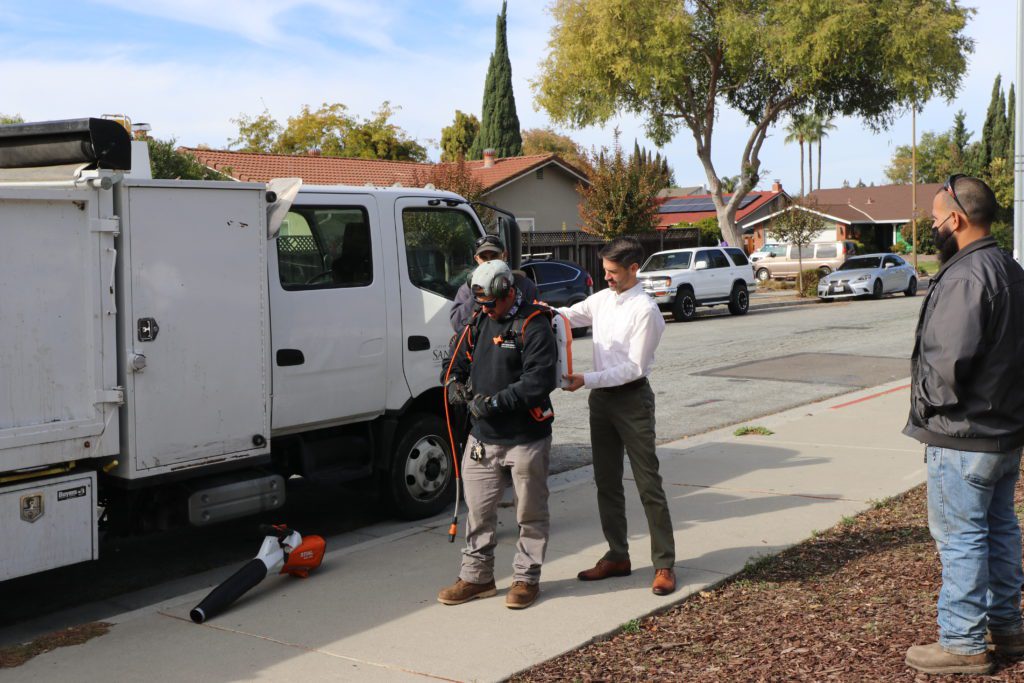Gas-powered leaf blowers could disappear from San Jose, two years before they stop being sold in California.
An electric leaf blower pilot program launched on Friday aims to decrease the noise and air pollution generated by gas-powered blowers. The idea was developed in close partnership with San Jose Councilmember Matt Mahan‘s office and residents of the District 10 Leaf Blower Working Group.
Group Chair Marty Stuczynski said lawn maintenance workers prefer the 2-cycle gas leaf blowers because they’re powerful and get the job done quickly. He has urged the city to transition to electric leaf blowers for years and is frustrated the City Council has been slow to act.
“All the cities around us get it done and we can’t get it done in San Jose,” he said. “I don’t want to wait years and years for this to get done. I want to get it done now.”
Stuczynski said if the pilot program goes well, the parks department will recommend the electric blowers and hopefully, councilmembers will be convinced to ban gas-powered leaf blowers citywide.


Armed with about $33,500 in city funding for three electric leaf blowers and personnel, Mahan enlisted the help of the parks department to evaluate the battery life, charging time and efficiency of the electric blowers.
“I’m thrilled about the pilot from an environmental perspective,” Mahan told San José Spotlight. “It demonstrates the power of community engagement in the political process.”
Dan Greeley, interim parks manager, said the department looks for alternative technologies to reduce the city’s carbon footprint as part of its 20-year ActivateSJ Strategic Plan. The department will evaluate the power of the electric blowers to move both dry and wet leaves, as well as their cost and comfort. Employees will alternate using gas and electric-powered leaf blowers every two weeks in Districts 2, 3, 6, 7, 9 and 10 while collecting data.
The pilot program, which started in late October, will continue until the end of June. The department will share preliminary findings in February 2022.
Greeley said electric leaf blowers still make noise, but at a lower decibel level. He added they are also less powerful, but still worth studying because of their other benefits.
“Our hope is to transition the older gas blowers to electric blowers over time,” Mahan said. “But they do have to meet the needs of our Parks and Rec staff.”


About 20 California cities—including Los Altos, Los Angeles, Los Gatos, Oakland and Palo Alto—have already banned gas-powered leaf blowers.
In October, Gov. Gavin Newsom signed legislation to phase out the sale of new gas-powered, small off-road engines in California. The new law affects gas-powered leaf blowers, lawn mowers and gas-powered generators. The bill was introduced by Assemblymembers Marc Berman (D-Menlo Park) and Lorena Gonzalez (D-San Diego).
AB 1346 requires new sales of these engines to be zero-emission by 2024 or whenever the California Air Resources Board determines is feasible. About $30 million in the state’s budget will be used for an incentive program to help landscaping businesses transition.
“It’s time to phase out these super polluters. They’re not only bad for our environment, but can cause serious health issues for workers who utilize them every day,” Gonzalez said in a statement. “We can and must help small landscaping businesses replace their gas-powered equipment with cleaner alternatives.”
According to the California Air Resources Board, in one hour of operation, a commercial gas-powered leaf blower emits pollution comparable to driving a 2017 Toyota Camry about 1,100 miles, approximately the distance from Los Angeles to Denver.
In addition, the extremely high levels of noise—up to 112 decibels—created by the gas-powered blowers pose risks of hearing loss.
“Carbon monoxide and particulate matter exhaust from gas-powered engines saturate the air with dangerous contaminants, accelerating environmental deterioration and damage to our city’s climate,” Mahan said.
Contact Lorraine Gabbert at [email protected].



Leave a Reply
You must be logged in to post a comment.